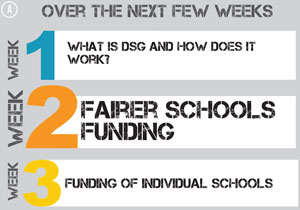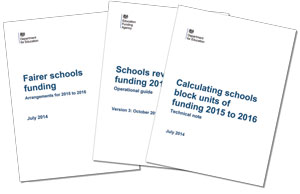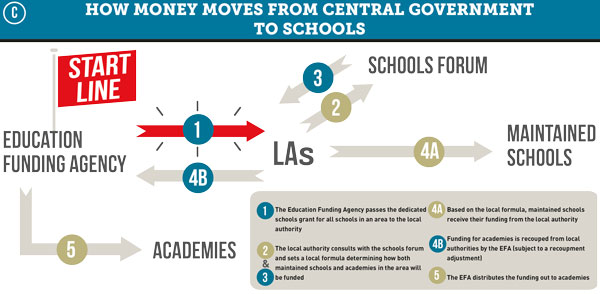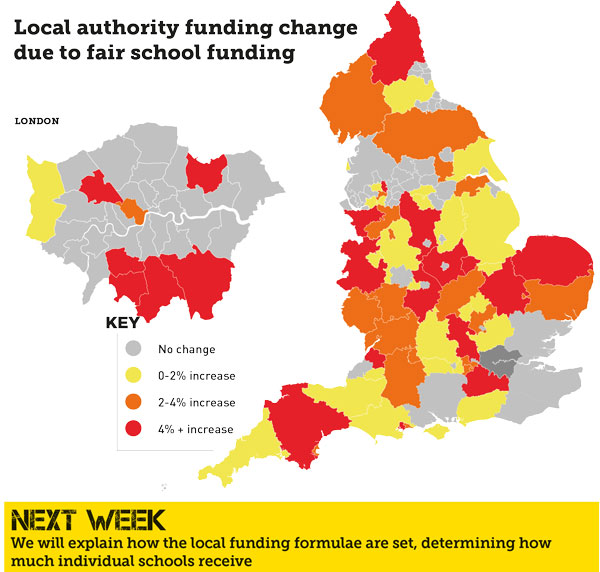The way in which the Dedicated Schools Grant, one of the main components of school funding, is calculated is changing. The Department for Education says that, for the first time in a decade, funding will be based on pupil characteristics rather than historic levels of spending. With additional guidance recently brought out on this, Schools Week takes a look at what the changes mean.

Last week, we took a look at what the Dedicated Schools Grant (DSG) is – and its importance for both maintained schools and academies.
For a recap, see the diagram above right – the Dedicated Schools Grant goes to local authorities, who then set how it is distributed to maintained schools and academies in their area, with a few adjustments along the way.
In 2015/16, changes are coming in which the Department for Education (DfE) says will reform an “unfair and out-of-date” funding system, helping those local authorities that it says are the least fairly funded at present.

Sixty-nine local authority areas will benefit from minimum funding levels being brought in, which amounts to an additional £390m being distributed via the Dedicated Schools Grant compared with 2014/15. This will increase the amount of “schools block” DSG received in these local authorities by up to 11.5 per cent (see map, right), although some way lower in most cases.
The minimum funding levels are worked out on the basis of seven elements:
• a per pupil amount
• a deprivation premium
• a premium for looked-after children
• a premium for pupils with low prior achievement
• a premium for pupils with English as an additional language
• a lump sum per school
• a sparsity sum for small schools

The amount of funding for each of these elements is set out in the table below.
These will be combined with October 2014 school census data to work out the total amount of “schools block” DSG due to a local authority area.
As the name suggests, there will be no increase for local authorities that already receive more than the minimum funding levels. Those local authorities will get the same per pupil funding in 2015/16 as in 2014/15, bar a few tweaks (see later example).
The DfE makes a number of points on the minimum funding levels in its guidance. Firstly, it says that where a local authority receives more DSG as a result of the minimum funding changes, it expects that this extra funding to be passed on to schools.
While this is the case, the DfE says that it does not expect the determining factors for the minimum funding levels (the seven points listed above) to be reflected in the local formulae that schools forums set that determines how much individual schools receive (these will be explored in more detail next week in part 3).

Carbon Reduction Commitment tweak
As alluded to above, there is one tweak to the DSG that all local authorities will receive in 2015/16. This relates to the way a deduction for costs under the government’s Carbon Reduction Commitment (CRC) emissions trading scheme is administered.
In 2015/16, the headline amount of DSG per pupil that all local authorities receive will be reduced by £7.51. This will be applied after the fairer funding adjustment detailed above has been applied.
In 2014/15, the CRC has been met via a lump sum taken off the Dedicated Schools Grant which each local authority area received, based on their previous year’s CRC spending – rather than a per pupil amount.
Overall, therefore, some areas are likely to see a slight gain from this change, while others lose out slightly.
The bottom line
Local authority areas have to date not been told their final Dedicated Schools Grant allocations for 2015/16, though based on the minimum funding levels and the October 2014 schools census they will now be able to work this out.









Your thoughts